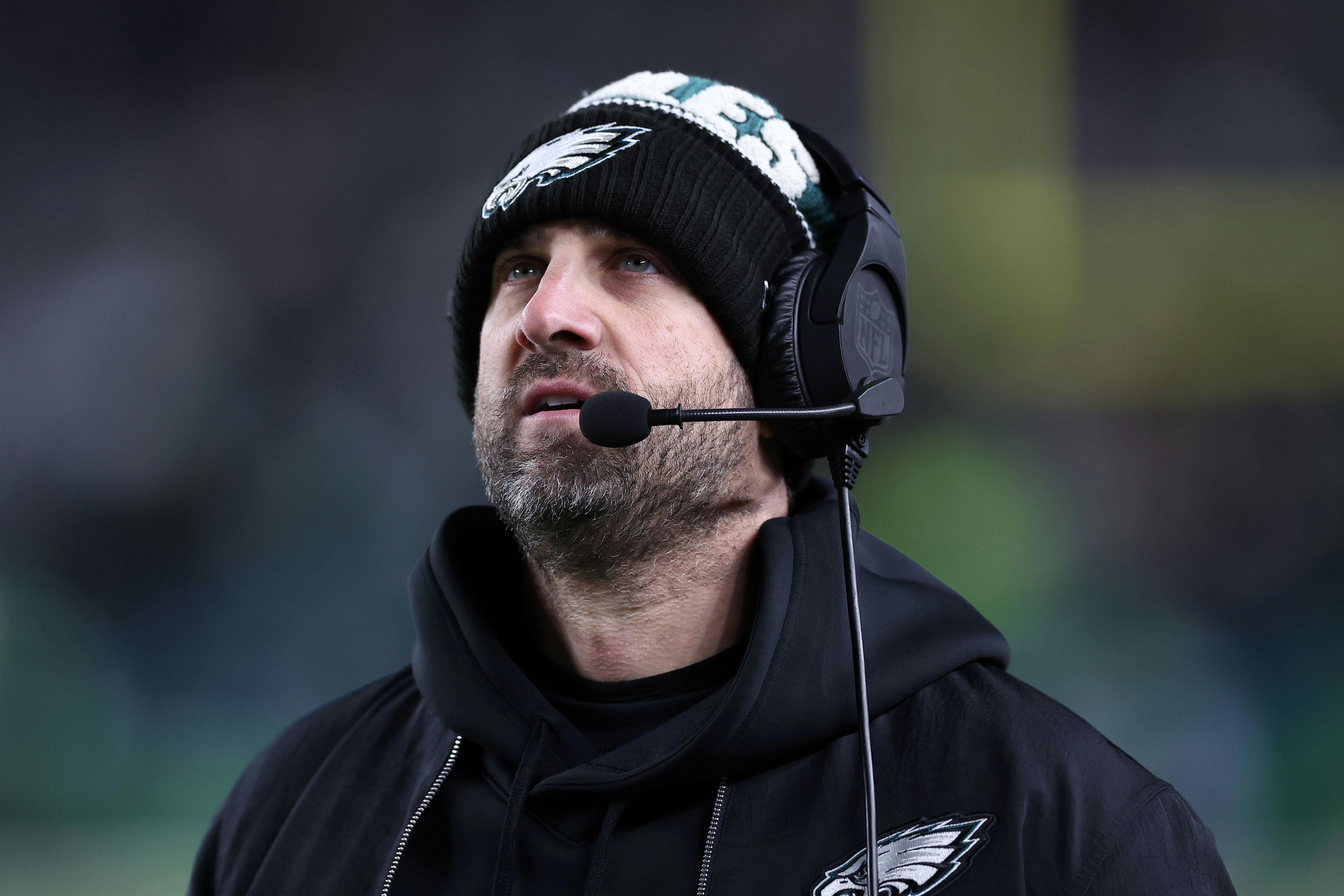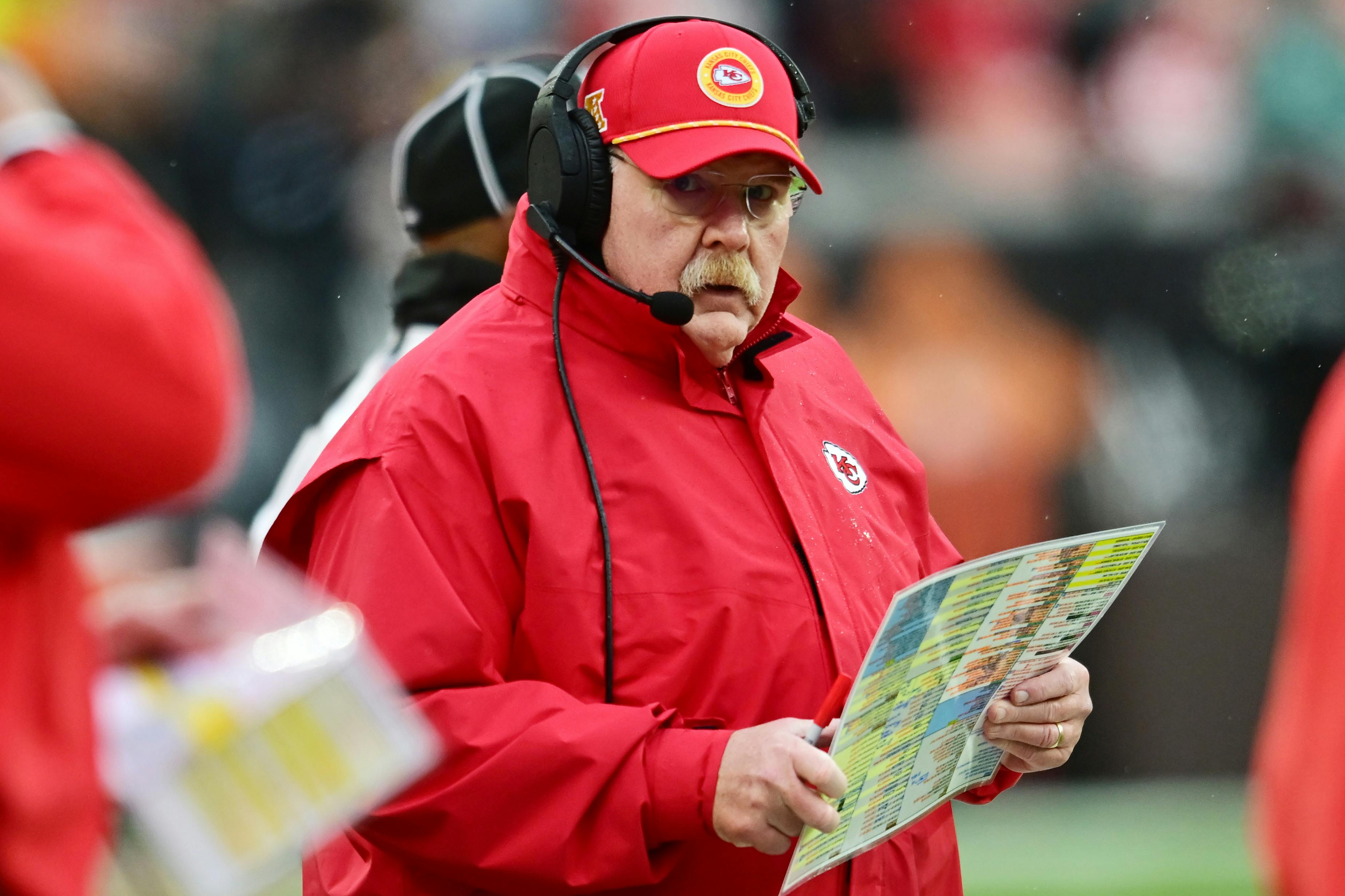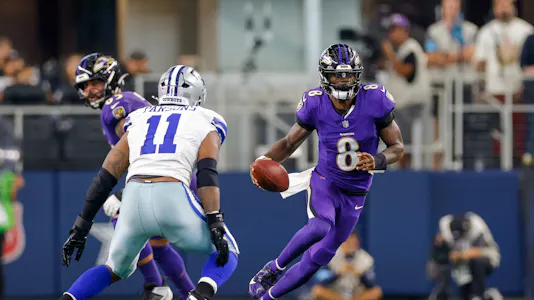Do NFL Bye Weeks Matter in Predicting the Super Bowl Winner?

The Super Bowl bye week is annually the longest break for football fans each season. For many teams, it's also the first extended hiatus in months.
That's the case for the Philadelphia Eagles as they take on the Kansas City Chiefs on Sunday, Feb. 9, at 6:30 p.m. ET (FOX) from the Caesars Superdome in New Orleans. The Chiefs are favored by 1.5 points by the Super Bowl odds.
While Kansas City enjoyed a first-round bye in the postseason, both of these teams saw their regular-season bye within the first six weeks of the season. That means one of them will make history and buck a trend that has emerged among recent Super Bowl predictions.
Super Bowl bye week history
On its face, it may seem like a rather absurd premise: does the timing of a team's bye week really have any impact on its ability to reach and ultimately win the Super Bowl?
As it turns out: quite a bit. Whether it's correlation or causation (or something in between), nearly every Super Bowl winner in the last decade has enjoyed a week off over the back half of the regular season.
In fact, no team has won the Super Bowl with a bye week earlier than Week 7 since the New Orleans Saints (Week 5) beat the Indianapolis Colts (Week 6) in 2010 - something that is guaranteed to change this Super Bowl Sunday.
How do NFL bye weeks work?
Every team's bye week is determined before the start of the regular season. In recent years, NFL bye weeks have traditionally started in Weeks 4, 5, or 6 and spanned anywhere from 8-10 weeks with at least two teams off nearly every week in between.
This year, every team's bye week was between Week 5 and Week 14, and there were no byes in Week 8 or Week 13. The Eagles joined three other teams with the first bye week in early October, and the Chiefs followed suit a week later with a Week 6 bye.
Each team's bye week serves as a great opportunity to not only rest but also reset and address any lingering concerns from the weeks prior. Case in point: the Eagles were 2-2 entering their bye week this year; they've lost one game in 16 weeks since.
When did the NFL introduce bye weeks?
For the first two decades after the AFL-NFL merger, teams played the entire regular season without a bye week. Then, ahead of the 1990 NFL season, first-year commissioner Paul Tagliabue expanded the regular season to 17 weeks and reinstated bye weeks for the first time since 1967.
The league also added two extra wild-card spots to expand the playoffs to 12 teams. That meant that four of the six teams in each conference would play in the wild-card round while the top two seeds earned a first-round bye - a system that remained in place until the 2020 season, when the playoffs expanded to 14 teams and the No. 2 seed lost its bye.

Why bye weeks matter for Super Bowl predictions
It's hard to ignore the data: late bye weeks have been a strong predictor for success in the Super Bowl era and especially over the last decade.
Here is a look at every Super Bowl finalist dating back to Super Bowl 45 and when their bye week landed during the NFL regular season:
| Super Bowl | Champion (bye) | Runner-up (bye) |
|---|---|---|
| Super Bowl 58 | Kansas City Chiefs (10) | San Francisco 49ers (9) |
| Super Bowl 57 | Kansas City Chiefs (8) | Philadelphia Eagles (7) |
| Super Bowl 56 | Los Angeles Rams (11) | Cincinnati Bengals (10) |
| Super Bowl 55 | Tampa Bay Buccaneers (13) | Kansas City Chiefs (10) |
| Super Bowl 54 | Kansas City Chiefs (12) | San Francisco 49ers (4) |
| Super Bowl 53 | New England Patriots (11) | Los Angeles Rams (12) |
| Super Bowl 52 | Philadelphia Eagles (10) | New England Patriots (9) |
| Super Bowl 51 | New England Patriots (9) | Atlanta Falcons (11) |
| Super Bowl 50 | Denver Broncos (7) | Carolina Panthers (5) |
| Super Bowl 49 | New England Patriots (10) | Seattle Seahawks (4) |
| Super Bowl 48 | Seattle Seahawks (12) | Denver Broncos (9) |
| Super Bowl 47 | Baltimore Ravens (8) | San Francisco 49ers (9) |
| Super Bowl 46 | New York Giants (7) | New England Patriots (7) |
| Super Bowl 45 | Green Bay Packers (10) | Pittsburgh Steelers (5) |
Notice a trend among the winners? Six of the last seven Super Bowl champions enjoyed a bye in Week 10 or beyond, while nine of the last 11 winners saw their bye no earlier than Week 9. And since the Saints won in 2010, every subsequent champion has made their title run following a Week 7 bye or later.
It's been a similar story for the second-place finishers, too. In the last eight years, only the San Francisco 49ers made the Big Game with a bye week earlier than Week 7, and six of those eight runners-up enjoyed their bye week over the back half of the season.
In total, 15 of the last 16 Super Bowl finalists have featured a bye in Week 7 or later, most of which came in Week 10 or beyond. Some of that is a product of bye week scheduling - for example, half of all bye weeks this year were after Week 10 - but that still doesn't fully explain the skewed representation of late-season byes in the title game.
Consider this: in the 33 seasons since the NFL reintroduced bye weeks (excluding 1993, when teams had two byes), the team with the later bye week has won 18 times compared to 14 wins for the team with the earlier bye. (The New York Giants and New England Patriots both had a Week 7 bye in 2011.)
And since that early-bye duel between the Saints and Colts in 2010, teams with the later bye have posted a 10-4 record straight up / 9-5 against the spread in the Super Bowl - winning nine of the last 11 outright and six straight entering Super Bowl 59.
How important is a 1st-round bye week?
Historically, earning a first-round bye week in the postseason has been a virtual prerequisite to making a run to the Super Bowl. That's changed since the NFL dropped the second bye week in 2020, though, with just five of the last 10 finalists claiming their conference's No. 1 seed and accompanying bye week.
Before that, 48 of the 60 Super Bowl finalists from 1990-2019 enjoyed a first-round bye in the playoffs - including 22 of 30 Super Bowl champions and 26 runners-up. That isn't all that surprising on the surface: the two best teams in each conference earned that bye each year, and they had to win one fewer game to reach the Super Bowl.
What's even more interesting is how those teams fared once they reached the Big Game.
Since 1990, 16 teams have played in the wild-card round and ultimately reached the Super Bowl, and 14 of them faced off against a team that enjoyed a first-round bye. Those teams went 10-4 SU / 11-3 ATS, including eight wins in the last nine meetings and five straight over the last 15 years.
Last year, the Chiefs made a run all the way from the wild-card round to the Super Bowl and beat the top-seeded 49ers in the title game. The roles are reversed this year with No. 2 seed Philadelphia needing three wins to set up this Super Bowl rematch with No. 1 seed Kansas City, which is the more well-rested team heading into Super Bowl 59.

What Super Bowl bye week history means for Chiefs vs. Eagles
Regardless of how our Super Bowl predictions turn out, one of these two teams will make history with a win in Super Bowl 59.
Whether it's the Eagles (Week 5) or the Chiefs (Week 6) hoisting the Lombardi Trophy, they'll become the first team in 15 years to win the Super Bowl with a Week 6 bye or earlier and just the ninth team to do that in the last 35 years (excluding the 1993 season).
Still not convinced that the NFL schedule matters for predicting the title winner?
Consider that Super Bowl champions have enjoyed a bye week roughly 1.5 weeks later on average than runners-up since 1990. The three finalists with the latest bye weeks in that span (Week 13 or later) went 3-0 in the Big Game, winning by a combined 52 points.
Neither team enjoyed that type of late-season siesta this year, but the Chiefs' bye was a week later than the Eagles' and they benefitted from a week off in the playoffs, too. Head coach Andy Reid is also notoriously tough to beat with extra time to prepare: he's 33-7 in his career coming off a bye week, which is the best record in NFL history (min. 10 games).
All of that could be tough for Philadelphia to overcome against its old boss on Super Bowl Sunday, though it's also the "hotter" team with wins in five consecutive weeks and that sterling 15-1 record since its last week off four months ago.
Either way, we'll see one of these teams buck a major trend in Super Bowl 59. But when you prepare to bet on the 2026 Super Bowl odds, keep an eye on the 2025-26 NFL schedule once it's released and where each team's bye week lands - it could make all the difference in the end.
What to know about Chiefs vs. Eagles Super Bowl
- Super Bowl by the numbers
- Andy Reid vs. Nick Sirianni comparison
- Tom Brady vs. Patrick Mahomes GOAT debate
- Chiefs vs. Eagles rematch
- Chiefs vs. Eagles history
- Every Super Bowl rematch in NFL history
- New Orleans Super Bowl history
- Ranking Super Bowl rings
- Do NFL bye weeks in predicting the Super Bowl winner
- Chiefs postseason winning streak
- Chiefs Super Bowl history
- Eagles Super Bowl history
- Chiefs Super Bowl three-peat
Super Bowl betting odds pages
Don't miss our all of our other NFL futures.
Here are our best Super Bowl betting sites:
- Caesars Promo Code: SBRBONUSDYW | Read our Caesars Review
- BetMGM Bonus Code: SBRBONUS | Read our BetMGM Review
- bet365 Bonus Code: SBRBONUS | Read our bet365 Review
- FanDuel Promo Code | Read our FanDuel Review
- DraftKings Promo Code | Read our DraftKings Review
(21+. Gambling Problem? Call 1-800-GAMBLER)
* Bonuses not applicable in Ontario.
Not intended for use in MA.
Each betting site featured on SBR has been meticulously researched and selected by our team of experts. If you sign up through our links, we may get a commission.
Related pages
- Best Sports Betting Sites | Best Sportsbook Promos (U.S. only)







